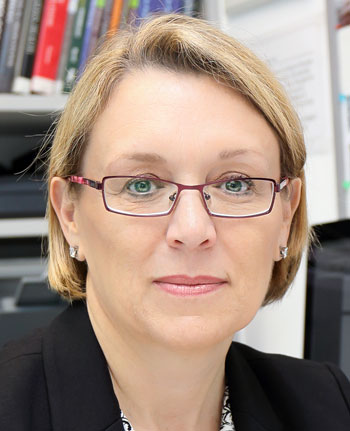
New mothers are increasingly using expressed breast milk (either pumped or expressed by hand into a bottle) instead of directly breastfeeding their babies, according to research from the University of British Columbia (UBC).
The study also found that mums who use expressed breast milk typically transition their babies to infant formula feeding sooner than their breastfeeding peers, a trend that may impact the health of our next generation.
“Breastfeeding is the unequalled method for feeding infants,” says Marie Tarrant, director of nursing at UBC’s Okanagan campus. “It has been previously determined that breastfeeding is important for the nutrition, immunology, growth and development of infants and toddlers. Anything that contributes to shortening the recommended six months of exclusive breastfeeding is a concern.”

UBC Professor Marie Tarrant
Tarrant and her research team, including co-author Dorothy Bai of the University of Hong Kong, studied the infant feeding practices of more than 2,000 mums living in Hong Kong. They found that during a five-year stretch, mothers moved away from directly breastfeeding their infants to using expressed breast milk, which is usually delivered via a bottle.
“New mothers may believe there is no difference between expressed breast-milk feeding and direct feeding at the breast,” says Tarrant. “Although expressed breast-milk feeding provides greater benefits than infant formula, bottle-feeding may increase the risk of respiratory issues, asthma, rapid weight gain and oral diseases.”
The study demonstrated that those moms who expressed breast milk were more likely to quit breastfeeding earlier than moms who directly breastfed.
Tarrant believes that a lack of breastfeeding support may be partly to blame for this feeding behaviour. She suggests that providing greater access to professional lactation support to new mothers, particularly in the first 24 hours after birth, could ensure that new infants receive the optimal nutrition.
The study, recently published in Public Health Nutrition, was funded by the Health and Medical Research Fund, Government of the Hong Kong Special Administrative Region.
Source: University of British Columbia
Reference: Dorothy Li Bai, Daniel Yee Tak Fong, Kris Yuet Wan Lok, Janet Yuen Ha Wong, Marie Tarrant. Practices, predictors and consequences of expressed breast-milk feeding in healthy full-term infants. Public Health Nutrition, 2016; 1 DOI: 10.1017/S136898001600241X



